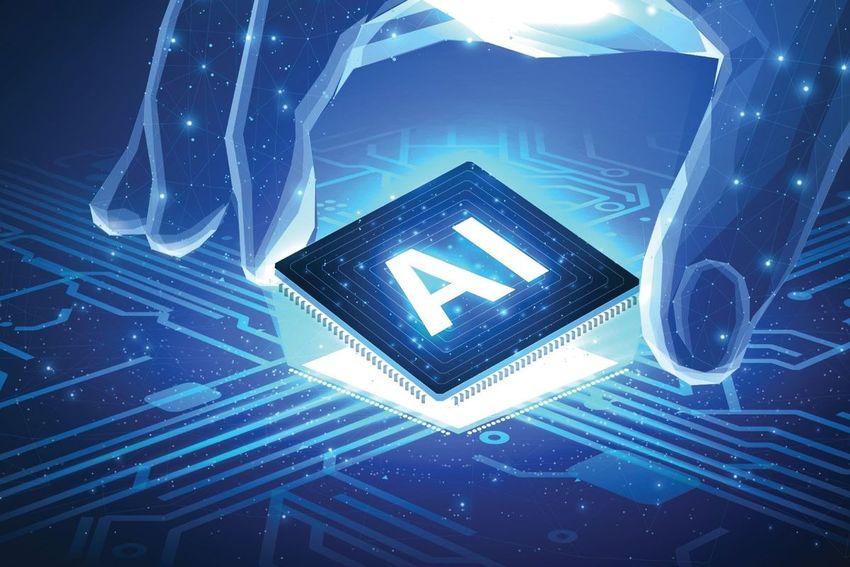Artificial Intelligence (AI) is no longer a futuristic concept—it’s a transformative technology reshaping industries, businesses, and everyday life. Big tech companies such as Google, OpenAI, Microsoft, Amazon, and Meta are leading the charge in leveraging AI to innovate, solve complex problems, and create new opportunities. These organizations are not only driving AI research but also integrating it into their products and services, impacting billions of people worldwide.
In this article, we explore how these tech giants are utilizing AI and the implications of their efforts on the future of technology.
1. Google: Advancing AI for Universal Access and Utility
Google has long been at the forefront of AI research and application. Through its AI research division, Google DeepMind, and tools like TensorFlow, the company is redefining how we interact with technology.
Key AI Innovations by Google:
- Search Engine and Natural Language Understanding
Google uses AI to enhance search engine results through algorithms like BERT (Bidirectional Encoder Representations from Transformers), which improves the understanding of search intent and context. - Google Assistant
Google Assistant uses AI to enable conversational interactions, integrating seamlessly with devices and services for scheduling, reminders, and smart home control. - Healthcare
Google DeepMind’s AI models are being used for early disease detection, personalized medicine, and healthcare diagnostics like predicting kidney failure or breast cancer. - AI in Cloud Services
Google Cloud offers AI-powered tools such as Vision AI, Translation API, and AutoML to empower businesses with machine learning capabilities.
2. OpenAI: Democratizing Artificial Intelligence
OpenAI’s mission is to ensure that artificial general intelligence (AGI) benefits all of humanity. Its focus on responsible AI development has produced some of the most advanced AI models in the world.
Key AI Contributions by OpenAI:
- GPT (Generative Pre-trained Transformers)
OpenAI’s language models, such as GPT-3.5 and GPT-4, power a wide range of applications, from chatbots and content generation to coding and decision support. - DALL·E
A state-of-the-art image generation AI that creates images from textual descriptions, revolutionizing creative industries. - Codex
This model, integrated into tools like GitHub Copilot, assists developers by auto-generating code, reducing programming time, and enhancing productivity. - AI Alignment
OpenAI actively researches aligning AI systems with human values to minimize risks and ensure ethical outcomes.
3. Microsoft: AI as a Core Strategy
Microsoft is embedding AI across its ecosystem, from productivity tools to cloud computing, making AI a central part of its strategy.
Key AI Initiatives by Microsoft:
- Azure AI Services
Microsoft Azure provides AI and machine learning tools like cognitive services, which include natural language processing, speech recognition, and image analysis. - Copilot in Office 365
By integrating AI into Office products like Word, Excel, and PowerPoint, Microsoft enables users to automate tasks, generate summaries, and create advanced visualizations. - Partnership with OpenAI
Microsoft has invested heavily in OpenAI, integrating GPT models into Azure OpenAI services and Bing Chat for enhanced conversational AI capabilities. - AI for Accessibility
Microsoft’s AI-powered tools, like Seeing AI, assist individuals with disabilities by describing surroundings, text, and people in real-time.
4. Amazon: Revolutionizing E-Commerce with AI
Amazon has seamlessly integrated AI into its operations, from supply chain optimization to personalized shopping experiences.
Key AI Applications at Amazon:
- Personalized Recommendations
AI algorithms analyze user behavior to suggest products, driving higher sales and enhancing the shopping experience. - Amazon Alexa
Alexa, Amazon’s voice assistant, uses AI for natural language understanding, enabling smart home automation and conversational interfaces. - Warehouse Automation
Robots powered by AI manage inventory, streamline logistics, and improve delivery speed. - AWS Machine Learning Services
Amazon Web Services (AWS) offers tools like SageMaker, Rekognition, and Polly for businesses to build and deploy AI models.
5. Meta (Facebook): Building the Metaverse with AI
Meta is leveraging AI to create immersive virtual worlds and enhance social connectivity. The company also uses AI for content moderation and personalized user experiences.
Key AI Innovations by Meta:
- AI for Content Moderation
AI systems detect and remove harmful or inappropriate content across Meta platforms like Facebook and Instagram. - Metaverse Development
AI powers virtual avatars, 3D rendering, and real-time translations, building the foundation for Meta’s vision of the metaverse. - PyTorch
Meta developed PyTorch, an open-source machine learning framework widely used by researchers and developers globally. - Personalized Ads
AI algorithms analyze user data to deliver hyper-targeted advertisements, maximizing ROI for advertisers.
6. Tesla: Driving the Future with AI
Tesla’s use of AI extends beyond electric vehicles, focusing on autonomy, robotics, and energy solutions.
Key AI Contributions by Tesla:
- Autonomous Driving
Tesla’s Full Self-Driving (FSD) software uses AI to navigate roads, interpret traffic conditions, and make real-time decisions. - Tesla Bot
A humanoid robot powered by Tesla’s AI expertise, designed to perform repetitive or dangerous tasks in industrial settings. - Energy Management
AI optimizes Tesla’s solar energy solutions and battery performance for maximum efficiency.
Impact of AI Adoption by Big Tech
The adoption of AI by big tech companies has far-reaching implications:
- Economic Growth: AI-driven innovations boost productivity, leading to increased economic output.
- Job Transformation: While AI automates repetitive tasks, it also creates new job opportunities in AI development and deployment.
- Ethical Concerns: Issues such as data privacy, bias, and accountability need to be addressed to ensure ethical AI usage.
- Global Reach: These companies democratize access to AI technologies, enabling small businesses and startups to leverage AI for growth.
The Future of AI in Big Tech
Big tech companies are likely to continue dominating AI research and application, with future trends including:
- Generative AI Expansion: Tools for creating text, images, and videos will become even more powerful and accessible.
- AI-Powered Metaverse: Companies like Meta will push boundaries in creating virtual worlds using AI.
- AGI Development: Organizations like OpenAI and DeepMind are driving efforts toward achieving Artificial General Intelligence.
Conclusion
Big tech companies are leveraging AI to reshape industries, improve user experiences, and tackle some of the world’s biggest challenges. From personalized recommendations and virtual assistants to healthcare advancements and autonomous systems, AI is at the core of their strategies. As these organizations continue to innovate, the integration of AI into everyday life will only deepen, bringing us closer to a smarter and more connected world.


